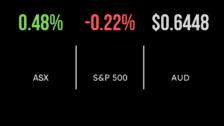When it comes to credit, experience pays
With advisers and investors faced with what appears to be zero-bound interest rates for at least the next three years, the already fast-growing alternative fixed interest (or ‘credit’) sector is sure to see more demand in the months ahead. The sub-asset-class has become increasingly attractive due to its higher, non-discretionary income payments and suitability for a buy-and-hold strategy.
Credit is an extension of traditional fixed income markets, with the key difference being the bonds or underlying ‘loans’ are being made to corporates, including large and small businesses. These loans can be made both privately, between a lender or pool of lenders and a business, or publicly, via existing market and over-the-counter structures. Given the nature of loans, the asset class is better suited to a ‘buy-and-hold’ strategy that most share investors don’t have the stomach for in times of volatility.
2020 has seen an acceleration of competition in both private and public lending. The Big Four banks have been aggressively withdrawing from the sector, leaving a gap for private players both big and small. But with popularity comes competition. And in lending markets, competition isn’t always the best for investors. Competition in lending, when not counterbalanced by risk management and due diligence, can be dangerous. When multiple companies are competing to lend to the same company, the likely result is lower interest rates, less covenants and potentially higher risk. The environment therefore requires a delicate balance of priorities.
It is in this environment where experience, longevity, and pedigree ultimately pay dividends. There are few Australian fixed-income and credit managers more experienced than Challenger Financial Group (ASX: CGF) and its specialist lending team, CIP Asset Management. The parent company has more than $85 billion in assets under management, $19 billion of which was managed by CIP as of 30 June 2020. The group is no Johnny-come-lately to lending, having operated since 2005, with a dedicated team of more than 21 staff.
The team is capably led by fixed-income “lifer” Victor Rodriguez, who joined in 2007, having built up experience at leading investment houses Aberdeen Investments and Credit Suisse before taking on the role of head of fixed income at Challenge. It is Victor’s role to perfect the delicate balance between liquidity, risk, and returns, which is so integral to credit investing. Most importantly, he is tasked with exploiting the growing inefficiencies occurring in the credit market that are being driven by two different trends. The first, traditional government bond managers seeking higher returns outside their income-challenged core; and the second, entrants bidding down returns.
It is becoming clear that CIP and Challenger are uniquely positioned to do this. CIP employs a dedicated credit risk management team, rather than requiring analysts to split roles and assessments. The team is outspoken in the importance of not waiting for the banks or companies to reach out to them with ‘deals’. Rather, they are on the front foot, seeking to identify opportunities proactively and in some cases knowing the assets of a borrower better than the company themselves. That represents an edge that only decades of experience in the industry offers.
After spending the majority of its combined history managing funds on behalf of larger institutions and pension funds, the team has finally made its credit income strategy available to the advised client market. It is a unique product, investing into both public and private credit investments, with private around 20% of the portfolio, and focusing on floating-rate bonds. The underlying assets fall in line with CIP’s experience, covering secured loans, securities credit including residential mortgage backed securities and asset backed securities like motor vehicle finance, and of course corporate bonds. Rather than relying solely on taking greater credit risk to deliver higher income, the group is mandated to have a weighted average credit rating that is of investment-grade.
Reflecting on 2020 thus far, Rodriquez and his team highlighted the four key trends that saw less experienced, traditional fixed interest managers get burned in the credit sector. These included:
- Taking on more credit risk, with the loans of the most leveraged borrowers underperforming in March;
- Taking on more structural risk, with unsecured hybrids falling as much as 6%;
- Taking on more duration risk, with spreads barely moving;
- Taking on more liquidity risk, which ultimately resulted in the cost to redeem from these ‘liquid’ funds increasing fivefold in a few short weeks.
The CIP Fixed Income team describes its philosophy as ‘taking a private approach to lending’ which to them means ‘underwriting credit risk as though you will own it – not trade it’. That’s a very important distinction in this environment.
Expanding on this, CIP confirms that this approach “means actively sourcing new opportunities rather than waiting for a bank to call, and engaging with borrowers and arrangers directly to effect structural changes to transactions in order to mitigate downside risks and access better quality information.”
The Credit Income Fund has now been running for over three years, but the strategy has been employed since 2011 for institutional clients. Over this period it has delivered both a consistent return of cash-plus-3.5%, low volatility at just 0.8% per annum, and most importantly, it has delivered a positive return in 97% of months in operation. Given the various credit events during this period, experience has clearly paid off.










